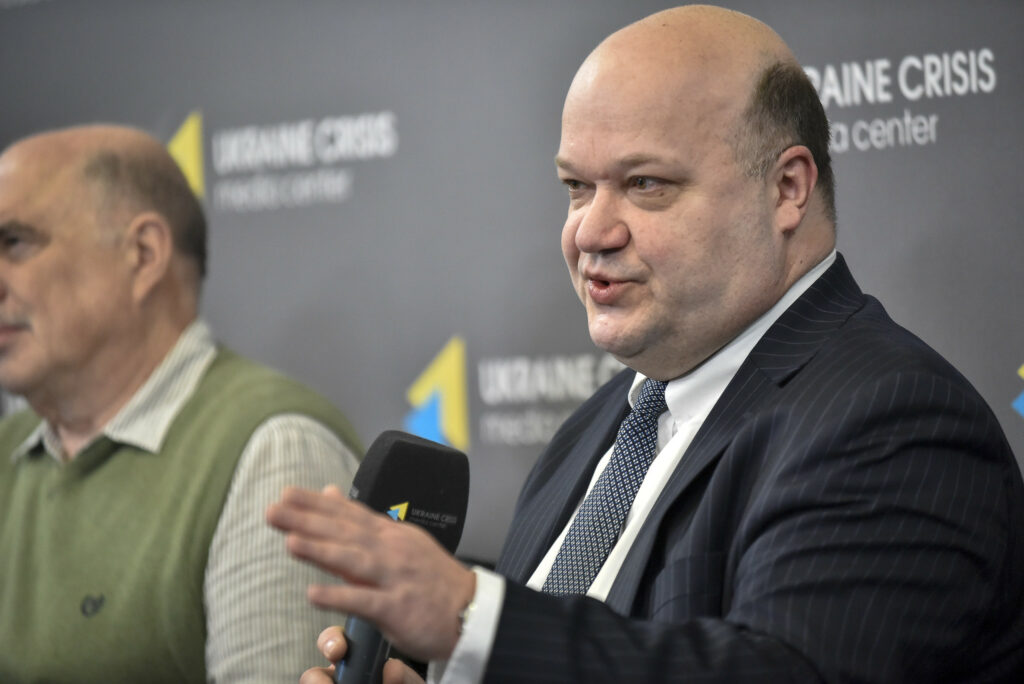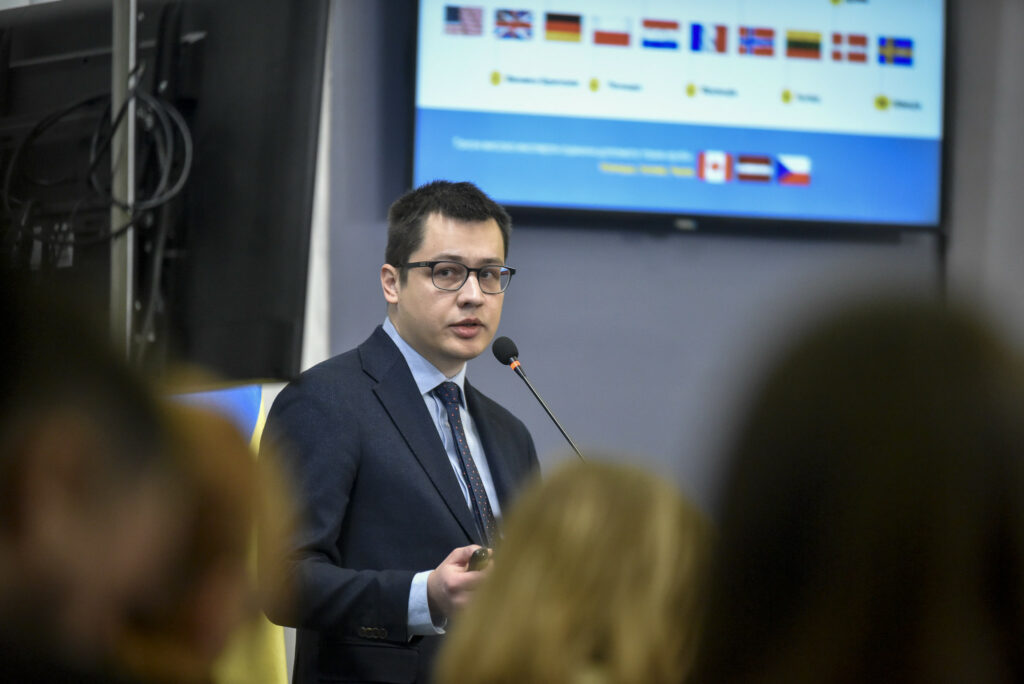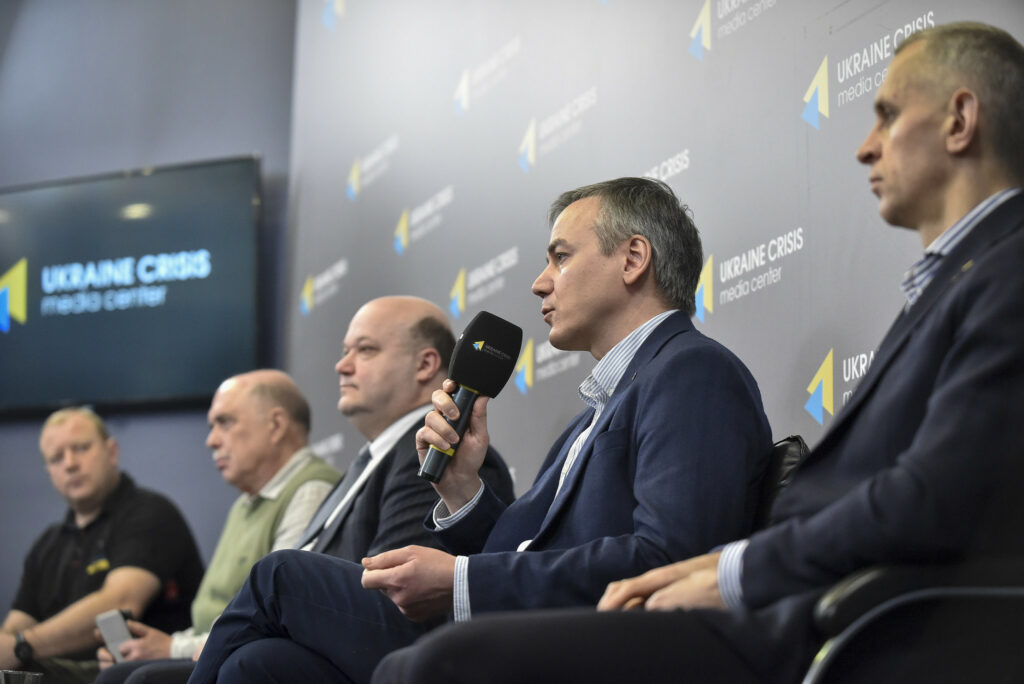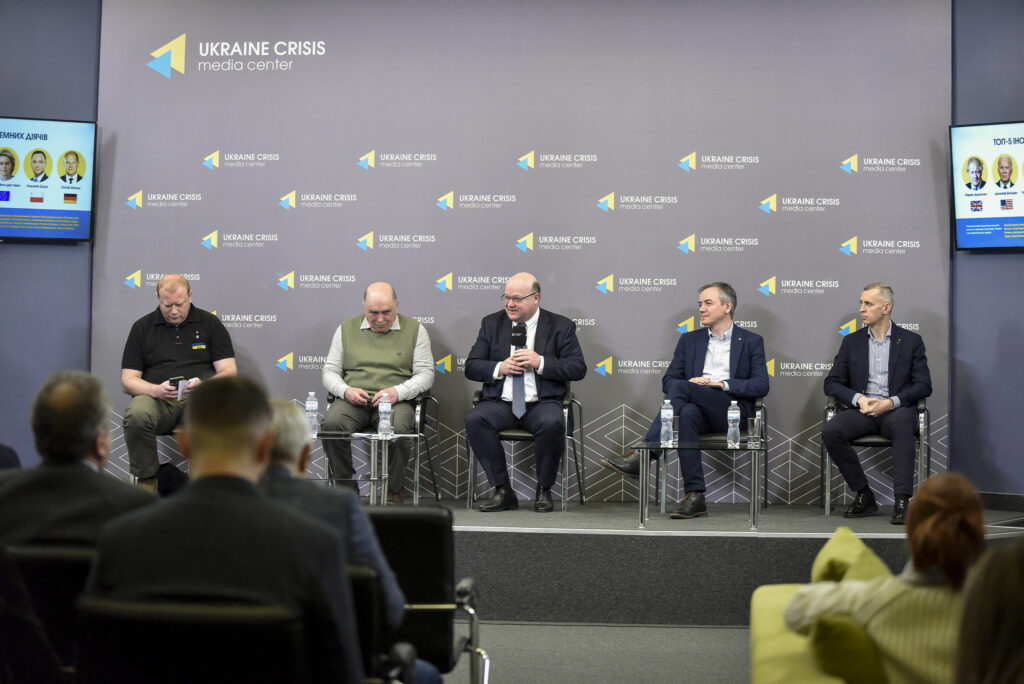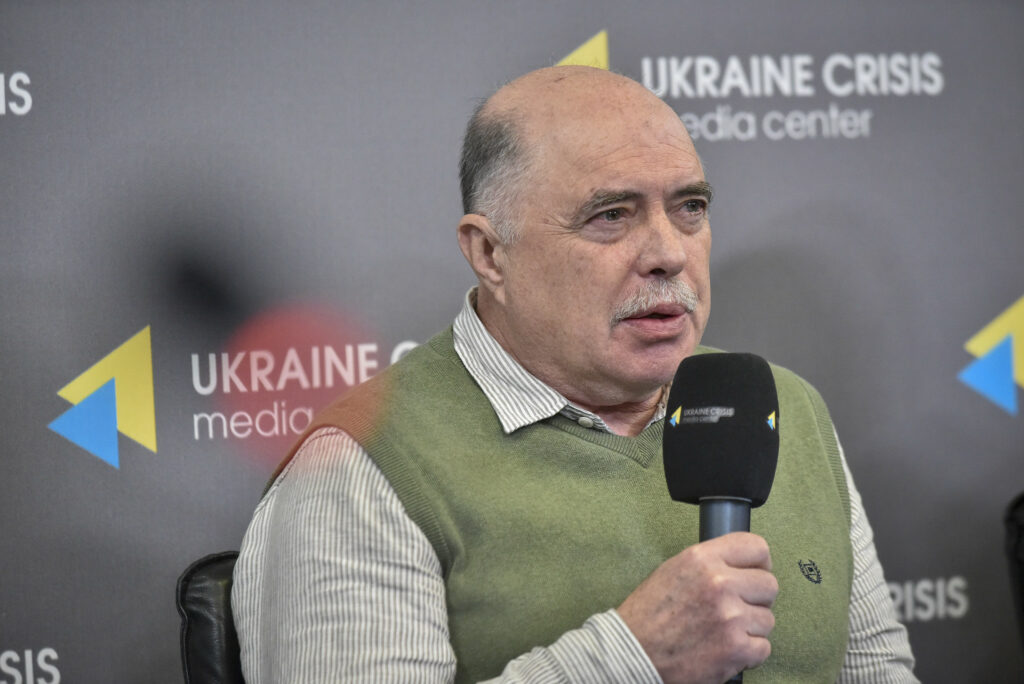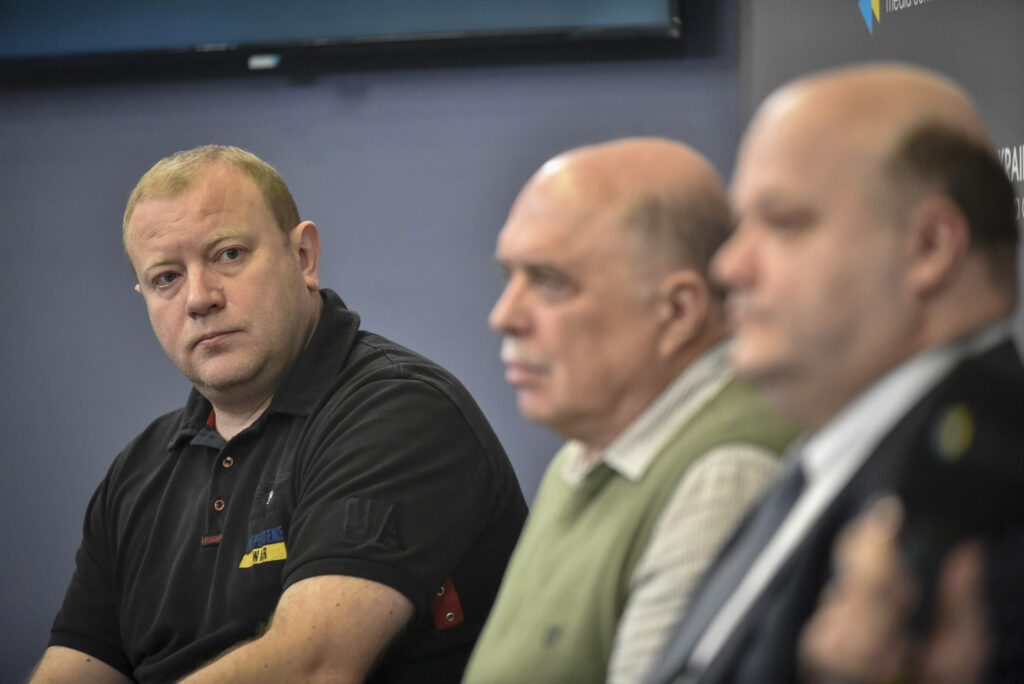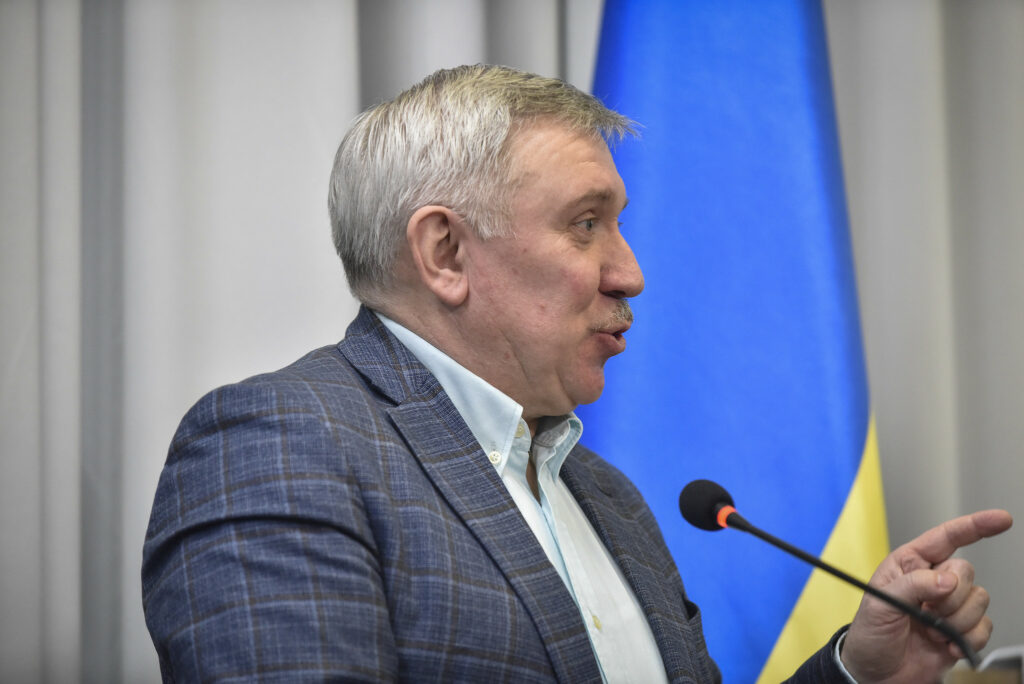From assistance to victory
On the second anniversary of the full-scale phase of Russian aggression, Ukraine Crisis Media Center announced the results of its own expert survey “Ranking of partner countries and international leadership’s assistance to Ukraine in 2022-2024.” This is a unique attempt to systematically analyze how the Ukrainian expert community assesses the assistance of various countries and their leadership in strengthening the protection of Ukrainians.
“Each country reports on what kind of assistance and in what amount it has provided to Ukraine. There are international trackers that monitor this area, such as the Kiel Institute for the World Economy. But there are things that you can’t analyze more thoroughly if you do not have reputable experts who evaluate how it is perceived in Ukraine. Second, not everything is made public, especially when it comes to military-technical assistance. Another important thing is the time when this assistance arrives. Figures on paper and actual units of equipment at the front are different things,” said Valeriy Chaly, Chairman of the Board at Ukraine Crisis Media Center, Ambassador Extraordinary and Plenipotentiary of Ukraine, Ambassador of Ukraine to the USA (2015-2019).
The expert survey was conducted on February 13 – 23, 2024 using a questionnaire method. A total of 50 leading Ukrainian experts in international relations, security, economy, and energy took part in it. These are well-known Ukrainian diplomats, scientists, and journalists.
When presenting the survey results, Volodymyr Solovian, Head of Hybrid Warfare Analytical Group at Ukraine Crisis Media Center, said that the experts were asked to name the top ten countries that helped Ukraine the most during the two years of resistance to large-scale Russian aggression. The survey also identified the top 5 foreign leaders who, in Ukrainian experts’ opinion, helped Ukraine the most.
“It is worth noting that the survey took into account the dynamics and significance of the partners’ assistance to Ukraine, the initiative of individual countries, and the stability of support. This is what makes this survey unique, as the ranking results do not necessarily correspond to quantitative parameters,” the analyst noted.
The survey did not assess the contribution of international organizations, including the EU, NATO, and the International Monetary Fund. However, this assistance was taken into account at the level of the countries’ bilateral aid.
Four categories were identified according to the areas of assistance: military-technical and other security assistance, political-diplomatic assistance, financial-economic assistance, humanitarian assistance and support for forced migrants.
In the expert survey, the category “Military-technical and other security assistance” covered the following areas: weapons and military equipment, training of the AFU servicemen, cyber defense, joint projects of the military-industrial complex, etc.
The USA is the leader in terms of such assistance – this is the main conclusion in this category. As of today, the country has allocated about $42 billion. At the same time, experts remain cautiously optimistic about the continuation of the US military assistance.
“The UK ranks second, which is quite interesting. If we look at numerical indicators, the financial equivalent of assistance, Germany should rank second. A big role was played by the fact that the British were pioneers in providing assistance to Ukraine in a number of different coalitions. The UK was the first to provide missile weapons and tanks. There are initiatives in the field of unmanned systems,” Volodymyr Solovian emphasized.
Germany, Poland, the Netherlands, France, Norway, Lithuania, Denmark, and Sweden ranked next in this category. The experts also highly appreciated the assistance from Canada, Latvia and the Czech Republic.
“It was not easy to decide on the countries because there are different parameters,” Oleksandr Khara, an expert at the Center for Defense Strategies, said in a comment. “When we look at the absolute numbers, it is clear that the USA is the No. 1 country. But there are small countries that help us. Estonia, for example, gives much more with regard to GDP than countries powerful in military, industrial and economic terms. Or there is such a country as Poland, which was critically important in the early days.”
According to him, in 2014, Western partners did not understand that the war was not just a misunderstanding or a manifestation of separatism, but a long war against Europe and the world order. Now the old Europe has woken up and at least rhetorically repeats what the Ukrainians said ten years ago.
“I would like to remind you that in his speech to both houses of Congress, President Petro Poroshenko said that he could not defend the country with sheets. They applauded him, but did not give him weapons. At that time, the Washington administration, the German chancellor, the French president believed that there was no need to escalate, and they said, ‘Ukraine is not so important for us, and Russia is a nuclear country, and we cannot do anything,” Oleksandr Khara said.
Valeriy Chaly added that they were not ready to supply so-called lethal weapons to Ukraine at that time. Lithuania was the first to give it to us. As for the US decision to supply anti-tank weapons, we must recognize the fact: this decision was made by Donald Trump at the presidential meeting, but had there not been a unified approach in communication, political, and external lines of the Ukrainian leadership, including the president, the head of the parliament, intelligence and ambassadors who worked in different countries of the world, this decision might not have been made.
“This is an example for us of how a consolidated Ukrainian position supported by partners can lead to good decisions. I would like this example to be used by the Ukrainian authorities now,” Chair of the UCMC Board said.
He also noted that then Ukrainians made the most accurate forecasts about the development of the situation, despite the power of the US supercomputers and the huge potential of the world’s intelligence analytics.
Returning to the events of 2014, Valeriy Chaly noted that then-Vice President Joseph Biden acted more boldly than President Barack Obama, with whom he had personal conversations on the matter. However, the evolution in his views led to the fact that he also did a lot of things that have not been made public yet.
In terms of the provision of political and diplomatic assistance, Great Britain tops the rating of Ukraine Crisis Media Center. Boris Johnson personally played a prominent role in this.
The United States ranks second. Its efforts to form an international coalition in support of Ukraine have been noted, and this leading role is currently maintained.
All Baltic countries are in the top ten. As for Poland, which ranks fourth, this was the assessment of all two years, and therefore the border conflict could not affect this result.
The top 10 also includes Germany (6), France (8), Canada (9) and the Czech Republic (10). Experts noted Denmark, Italy, Norway and Sweden close to these positions. The level of humanitarian aid and support for forced migrants was assessed separately.The countries that accepted the most Ukrainians took first to third place. These are Poland, Germany and the Czech Republic.
“We should prepare some kind of comprehensive indicator of support for Ukraine in the most difficult times, and this ranking is exactly what is needed,” said Ambassador Extraordinary and Plenipotentiary of Ukraine, Ambassador of Ukraine to the Republic of Singapore (2010-2016) Pavlo Sultanskyi.
In his opinion, such an indicator could help show how Ukraine should treat certain countries.The diplomat noted a positive example of Japan, Finland, as well as Qatar and Saudi Arabia, which help return our prisoners of war. He separately noted the People’s Republic of China.
“I do not call for Ukraine to argue with China, this is a path to nowhere. But it is useful to be honest and objective, to tell them the truth, – he believes. – We pay a lot of attention to China, we don’t like it, and quite justifiably. We don’t have to like countries. We must measure them by the results of their support for us.”
According to Valeriy Chaly, if the experts were to evaluate now, the position of the Czech Republic, whose president Petr Pavel announced very important initiatives, would be greatly improved in this rating.
The components of the “Financial and economic assistance” category were financial aid, support for the stability of the Ukrainian economy as a whole and the stability of the energy industry, in particular, the introduction and compliance with the regime of sanctions against the aggressor, etc. According to the results of experts’ conclusions, the following countries occupied the top ten places:
- USA
- Germany
- Great Britain
- Japan
- France
- Norway
- Canada
- Poland
- Netherlands
- Denmark
The experts also noted the assistance provided by Estonia, Italy, Lithuania and Sweden.
Commenting on this result, the founder and Chairman of the Board of the Institute of World Policy Viktor Shlinchak noted that war is still about mathematics, although diplomats do not completely agree with this.
“When we talk about the resources in this war, it is clear why it was predicted that Ukraine would fall very quickly, because the resources of Ukraine and the resources of Russia are incomparable – military, security, human, financial,” the expert admitted. – During the two years of the war, the Russian Federation spent 180 billion dollars. During this time, Ukraine received partners’ assistance of about 170 billion dollars, a large part of which was channeled tor strengthening financial institutions. We do not currently have parity in terms of military resources. There are $180 billion on one side of the scale, and $80 billion on the other. $300 Russian billions, which are frozen today, would help Ukraine to reach parity.”
However, money alone would hardly have been able to protect Ukraine’s energy system from Russian aggressors, if not for emergency technical assistance from our partners. In this regard, the Director of Energy Programs of the Razumkov Center Volodymyr Omelchenko mentioned the energy coalition assembled by Emmanuel Macron in 2022.
“Serious resources were allocated to us. In October, we primarily needed not so much money as equipment. Many countries helped with it. I would like to highlight France, the Netherlands, Germany, Poland, and the USAID program. Among the non-European countries, Japan and South Korea provided a considerable assistance .”
The President of the Center “Strategy XXI” Mykhailo Honchar continued the topic of energy protection. In the first months of hostilities, the Russians tried to hit our oil depots, and the question arose about the placing of the entire fuel supply system on a war footing.
“The first to come to help were Poland, the Netherlands and Bulgaria, whose role in supporting Ukraine is underestimated. Over time, we began to receive American diesel fuel. And now other countries are interested in the Ukrainian experience of survival and preserving resilience of the energy infrastructure in such conditions,” the expert emphasized.
The organizers of the rating also paid attention to personalities. The experts have identified the top 5 foreign figures who deserve the most gratitude from Ukraine. The undisputed leader here is former British Prime Minister Boris Johnson. He is followed by Joseph Biden.The head of the European Commission, Ursula von der Leyen ranks third. Polish President Andrzej Duda and German Chancellor Olaf Scholz rank fourth and fifth, respectively.
This rating records a reversal of the policy of many countries, which we could not have expected just a few years ago. France is the real leader in restoring the capabilities of the military industry, and the Netherlands is doing a lot. This opinion was expressed by Ambassador Extraordinary and Plenipotentiary of Ukraine to Canada (2015-2021) Andriy Shevchenko.
He believes that this reversal occurred primarily due to a reversal of public opinion in these countries, “We learned to win the hearts of the general public, and this became a powerful factor for changing the countries’ foreign security policy.”
According to Andriy Shevchenko, the map of countries’ support generally coincides with the map of diaspora activity. He informed that on February 24, the World Congress of Ukrainians organized a global action in support of Ukraine. More than 1,000 events in 750 cities of 70 countries were registered on the interactive map.
“If you look at this map, you will see that the most lights on it are not in North America, as you might expect, but in Europe. And this is already a new reality,” he stated.
In conclusion, Valeriy Chaly drew attention to the fact that only part of the work carried out by Ukraine Crisis Media Center was presented. In his opinion, international partners can be guided by this ranking from the viewpoint of how it is actually reflected in Ukraine.
“We will appreciate the international leaders’ efforts. Without them, it will be very difficult to overcome Russia. We wish them to be resolute, to see one step ahead,” urged Chair of the UCMC Board, expressing his wish that the next stage of assessing support for Ukraine would be the compilation of a victory rating.

